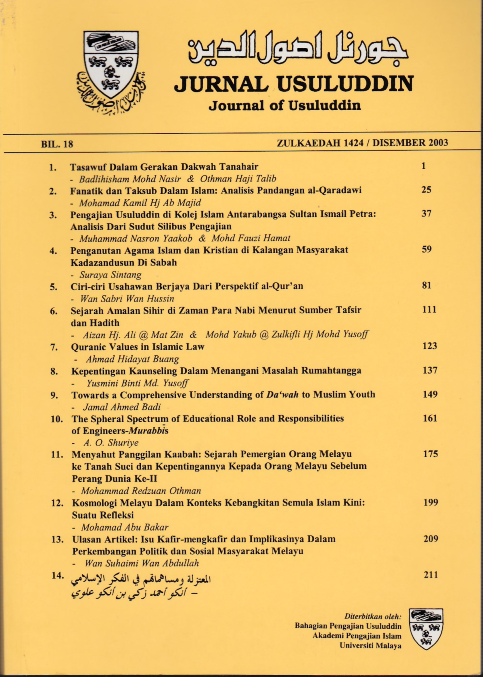Menyahut Panggilan Kaabah: Sejarah Pemergian Orang Melayu ke Tanah Suci dan Kepentingannya Kepada Orang Melayu Sebelum Perang Dunia Ke-II
Abstract
The conduct of the Hajj has ever since attracted many Western scholars and spies alike, the most referred-to accounts being the writing of Christian Snouck Hurgronje. Notwithstanding his careful and scholarly preparations, it must be said that his narratives is intermingled with prejudices and cannot be taken purely as a comprehensive academic work. As for the Malays, even though it is difficult to ascertain when the conduct of the Hajj was first performed, it is thought to be as early as the introduction of Islam to the region. Historically the Malay journey to Hijjaz to perform the religious duty was not an easy one. Apart from the cost incurred, the journey was hazardous and they were also exposed to various forms of exploitation. The difficulties faced by the Malay conduct of the Hajj which had been attended with difficulties began to receive the attention of the British colonial administration from the early 1920s. Despite the difficulties and hazards faced in the pursuit of performing the religious duty, the Malays showed no hesitation in making a sacred journey to perform the Hajj.











